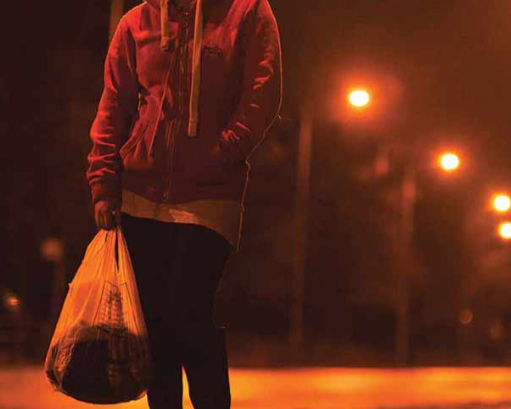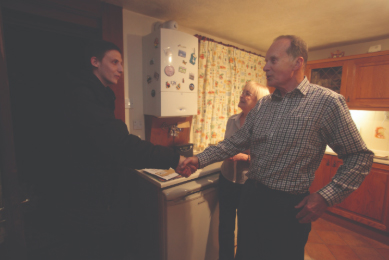Bradford Nightstop
Chordiality is delighted to announce that its current adopted community organisation is Bradford Nightstop.

Since its inception in 1993, Bradford Nightstop’s emergency homing scheme has been providing accommodation for homeless young people in the houses of vetted, trained volunteers. In this period, it is proud to announce that over 10,000 ‘bed nights’ have been provided.
However, a stark reminder of the need for Nightstop came in 2023, its 30th year, when a year-on-year comparative study showed that, per night, from 12 ‘rough sleepers’ recorded in Bradford in 2022, this had grown to 40 by 2023.

Bradford Nightstop has become an oasis in a bleak world, indeed a platform for some young people to restart their lives. Many just need a toehold to take stock and start again. Through Nightstop, homeless people are prevented from rough sleeping until their longer-term solution is resolved. One night at a time, they are offered a place of safety with a room of their own, transport, meals, basic essential supplies, washing facilities and the support required towards their next step.
Referrals are made over the telephone and come from trusted referral agencies. These include statutory and non-statutory organisations in and around Bradford, Calderdale and Kirklees including local authority housing options, care leaver organisations, educational support agencies, West Yorkshire Police and the Salvation Army.

The Nightstop model – active in over 30 locations across the Depaul UK network – is an efficient and valuable alternative to hostel or shelter accommodation. It responds quickly and flexibly to immediate need, is free at the point of use and does not consider the young person’s status with regard to entitlement to benefit or residency. Young people’s Nightstop experience is overwhelmingly positive, in feedback, at over 95%. Most importantly, its support and direction to other agencies combats a culture of dependency developing in Nightstop users.
As well as its overall operational achievements, Nightstop takes a pride in its individual successes, which are many. One such example is that of Mo, an 18-year-old of Black African heritage. Asked to leave the family home because of his ‘life choices and who he was as a person’, Mo has used Nightstop on several occasions, but eventually, managed to get a place at the housing options service, Bradford Foyer. Four months on he still resides there, but is looking for permanent accommodation. He feels lucky his life has remained ‘on-track’. He is currently taking four A-levels and hopes to go to university to study engineering or bio-medical sciences.
Can you help?

As with most charities, Bradford Nightstop relies heavily on volunteers and currently over 40 volunteers regularly make a tremendous difference to the lives of homeless young people.
Different roles exist for those wishing to volunteer; from hosting (accommodating young people one night at a time), telephone contact responders (taking referrals on a three-hour shift from home) to those working on the out-of-hours support teams.
Such has been the professionalism of its operation over the years that Nightstop enjoys an impressive volunteer retention rate – its longest serving volunteers have hosted for over 30 years.
If you would like to join its friendly team of volunteers, in any capacity, simply complete the application form on the website or contact the charity’s office on 01274 776888 to discuss the opportunities available. More information about Bradford Nightstop can be found on its website.
